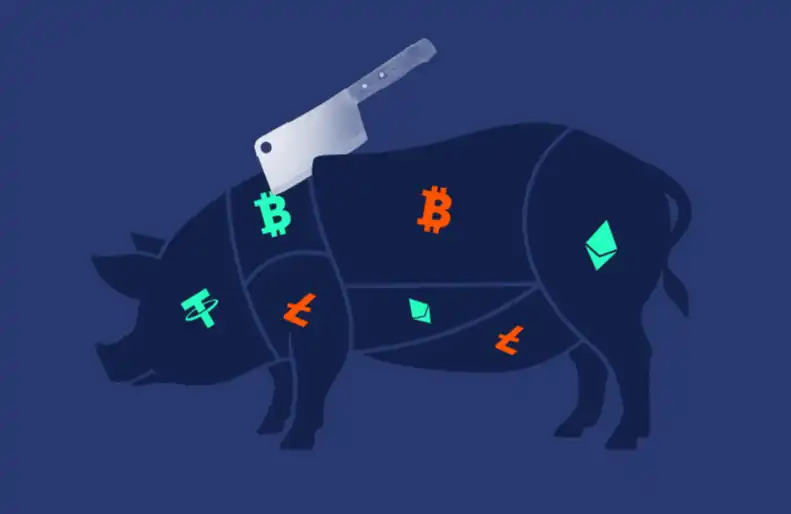GENIUS Stablecoin Bill Advances Further, Trump Family Interests a Senate Debate Focus
Original Title: "U.S. GENIUS Stablecoin Act Passes Senate Vote, Awaits House and Presidential Approval, Trump Family Stablecoin Among Controversies"
Original Author: Weilin, PANews
On the morning of May 20, Beijing time, the U.S. Senate passed a motion for cloture on the GENIUS Act stablecoin bill with a vote of 66 in favor and 32 against. Although the bill itself has not yet been passed, the next step for the GENIUS Act will be Senate floor debate and amendment procedures. However, this result has cleared a phased obstacle for the final legislation.
Since Senator Bill Hagerty introduced the GENIUS Act on February 4, the bill text has undergone multiple revisions, incorporating more provisions on anti-money laundering, consumer protection, and custody, while also restricting tech giants from issuing stablecoins unless they implement robust financial risk controls and strong consumer data privacy protection measures. The advancement of the bill has also demonstrated a key bipartisan legislative battle on the stablecoin issue.
Earlier this year, President Trump publicly stated that stablecoin and market infrastructure regulatory frameworks are expected to be introduced before the August congressional recess. If this significant bill is ultimately passed, it will become the first federal-level stablecoin legislation in the United States, with far-reaching implications that cannot be ignored.
With the Senate's vote, what are the key steps remaining for the GENIUS Act to become formal law? What legislative procedures need to be completed, and what are the focal points of debate among lawmakers? PANews has sorted through the core aspects of this.

Continuous Changes to the Bill: Addition of More Anti-Money Laundering and Tech Giant Restriction Provisions
On May 8, the GENIUS Act unexpectedly failed in a cloture vote in the Senate with a vote of 48:49, falling short of the required 60 votes. However, on the morning of May 20, the U.S. Senate once again voted, with a vote of 66 in favor and 32 against, passing the motion for cloture on the GENIUS Act stablecoin bill.
The cloture vote is intended to end debate on a particular topic and prevent senators from using prolonged debate (filibuster) to delay or block a bill's vote.
Prior to this, lawmakers' key points of contention were several: first, the possibility of tech giants like Meta issuing their stablecoins. Second, the relationship between President Trump and the commercial interests of the crypto industry. Additionally, nine Democratic senators recently stated in a joint declaration that the bill still lacks in areas such as anti-money laundering, national security, and accountability mechanisms.
As of May 19, comparing the old and new versions of the publicly reported U.S. Stablecoin Bill GENIUS Act (the latest version has not been formally released yet), it can be observed that the new version has added more provisions related to anti-money laundering, consumer protection, and custody. The new draft introduces an institution called the "Stablecoin Certification Review Committee," responsible for assessing whether each state's regulatory regime meets federal standards, replacing the previously exercised authority by the Treasury Department, and sets conditions for foreign stablecoin issuers operating in the United States.
Furthermore, the bill will allow tech companies like Meta to launch stablecoins into the stablecoin market only after implementing robust financial risk controls, strong consumer data privacy protections, and fair business practices.
In addition to these modifications, the core contents of the bill include:
1. The bill defines payment stablecoin as a digital asset used for payment or settlement. Such assets are pegged to a fixed currency value and fully backed by U.S. dollars or other approved high-quality liquid assets at a 1:1 ratio.
2. Licensing and Regulation: The bill establishes a clear issuance license application process to guide institutions seeking to issue stablecoins. It introduces a "dual regulatory framework" that allows issuers to choose between state or federal registration. Issuers with a market cap exceeding $100 billion will be subject to federal regulation. Issuers with a market cap below $100 billion can choose to continue operating under a state regulatory framework, provided that their state regulatory standards are substantially consistent with federal requirements.
3. Reserve Requirements: Stablecoin issuers must maintain a 1:1 reserve ratio with high-quality liquid assets such as cash, short-term U.S. Treasury bonds, or central bank deposits as reserve assets. Reserve funds must be managed separately from operating funds and undergo monthly certification.
4. Transparency: Issuers must publicly disclose their reserve assets and redemption policies.
5. Anti-Money Laundering (AML) Compliance: The bill classifies stablecoin issuers as financial institutions under the Bank Secrecy Act, requiring them to fulfill comprehensive AML obligations, including consumer identification, due diligence, and suspicious activity reporting.
6. Consumer Protection: In the event of issuer bankruptcy, stablecoin holders will be prioritized over other creditors for repayment.
7. Regulatory Jurisdiction Definition: The bill explicitly states that payment stablecoins are not considered securities, commodities, or investment companies under existing federal law.
On May 15, according to the GENIUS Bill draft's second page revealed by crypto journalist Eleanor Terrett, it is proposed to prohibit stablecoin issuers from misleadingly claiming FDIC insurance or using terms associated with the U.S. government; prohibit non-financial tech companies like Meta, Google, etc., from issuing stablecoins unless compliant with regulations, thereby strengthening the separation of banking and commerce; the draft also enhances enforcement capabilities for misconduct and expands the scope of government ethics oversight to include special government employees (including Elon Musk).

During the bill amendment process, bipartisan lawmakers also engaged in a heated debate regarding the Trump family's stablecoin project.
Elizabeth Warren, a senior Democratic member (ranking member) of the Senate Committee on Banking, Housing, and Urban Affairs, publicly stated: President Trump and his associates have already earned hundreds of millions of dollars from his crypto business. Trump is also expected to earn hundreds of millions of dollars annually from his USD1 stablecoin. The latest draft of the GENIUS Act circulating online does not include any provisions to prevent Trump and his family from profiting massively from his allegedly corrupt cryptocurrency scheme. Instead, the bill will expand the stablecoin market, further boosting Trump's crypto earnings.
Ultimately, as reported on May 15, bipartisan senators reached a consensus on this issue. Democratic Senator Kirsten Gillibrand stated that the bill's language had been modified to remove clauses targeting Trump's cryptocurrency project, such as meme coins. She emphasized that the revised bill has improvements in consumer protection and is not focused on Trump's ethical issues but aims to regulate the stablecoin space.
Approval Needed from the House and the President
Analysts point out that the GENIUS Act may face more challenges in the Senate and may find an easier path through the House.
Typically, when a bill is introduced, it is assigned to a committee. Committee members study, discuss, and amend the bill. The GENIUS Act proposed by Senator Bill Hagerty in the Senate on February 4 was assigned to the Senate Committee on Banking, Housing, and Urban Affairs.
Subsequently, the bill will be voted on in the respective chamber. If the bill passes in one chamber of Congress, it will be sent to the other chamber for the same process of study, discussion, amendment, and voting.
Once both chambers pass the bill, they must reconcile the differences between the two versions. Then, both chambers will have a final vote on the same version of the bill. If the bill passes, it will be sent to the U.S. President.
Upon receiving the bill, the President will review it. The President can approve the bill and sign it into law, or veto it. If the President chooses to veto the bill, in most cases, Congress can vote to override the President's decision and make the bill a law. However, if the President does not sign the bill while Congress is in recess, the bill will be automatically vetoed. This action is known as a pocket veto, and Congress cannot override such a veto.

From the current progress of the GENIUS Act, it can be seen that passing the Senate is a time-consuming process due to allowing filibusters to prevent the bill from reaching a final vote. This time, the cloture motion to end the debate requires a supermajority of three-fifths (60 out of 100 votes). The current Senate composition is as follows: Republicans: 53 seats, Democrats: 45 seats, Independents: 2 seats (usually voting in alignment with the Democrats). This means that even if all Republican senators vote in favor, they would need the support of Democratic senators in this vote.
Now, after the cloture motion on the GENIUS Act passes in the Senate, it will proceed to full Senate debate and amendment stages before moving to the House of Representatives.
However, legislation in the House only requires a simple majority (218 votes out of 435) to pass. Currently, the House is controlled by a Republican majority (220-215), making it relatively easier for the GENIUS Act to pass in the House.
If the GENIUS Act is successfully signed into law by the President, it will have a profound impact on the stablecoin market. For example, it would drive industry consolidation, leading some small issuers to exit the market as they may not meet reserve requirements. Consumer trust would increase, potentially driving stablecoin adoption. Strengthened reserve audits and anti-money laundering compliance measures are expected to enhance market transparency and attract institutional investors. However, non-financial tech companies issuing stablecoins may face restrictions, as new provisions require non-financial firms issuing stablecoins to comply with regulatory rules, potentially raising barriers for non-financial tech giants like Meta and Google to enter the stablecoin space.
However, the unresolved issue of the Trump family benefiting from World Liberty Financial through USD1 remains a challenge. According to the latest publicly available version, the bill does not explicitly restrict the President and his family from participating in crypto projects, and this loophole could become a point of future contention.
On May 9, U.S. Treasury Secretary Scott Bessent stated that the U.S. Senate failed to advance the GENIUS Act, calling it a "missed generational opportunity to expand the dollar's dominance and the financial innovation influence." He warned that without a unified federal regulatory framework, stablecoins would develop amid state regulatory fragmentation, hindering the U.S.'s global leadership and potentially pushing digital asset innovation overseas.
Currently, while the GENIUS Act stablecoin bill has not been formally signed into law, the successful cloture motion sets the stage for the legislation. If it can navigate through successfully, this bill will not only become the first federal-level stablecoin regulatory framework in the U.S. but also has the potential to reshape the entire stablecoin market landscape.
Original Article Link
Welcome to join the official BlockBeats community:
Telegram Subscription Group: https://t.me/theblockbeats
Telegram Discussion Group: https://t.me/BlockBeats_App
Official Twitter Account: https://twitter.com/BlockBeatsAsia


 Forum
Forum Finance
Finance
 Specials
Specials
 On-chain Eco
On-chain Eco
 Entry
Entry
 Podcasts
Podcasts
 Activities
Activities
 OPRR
OPRR









